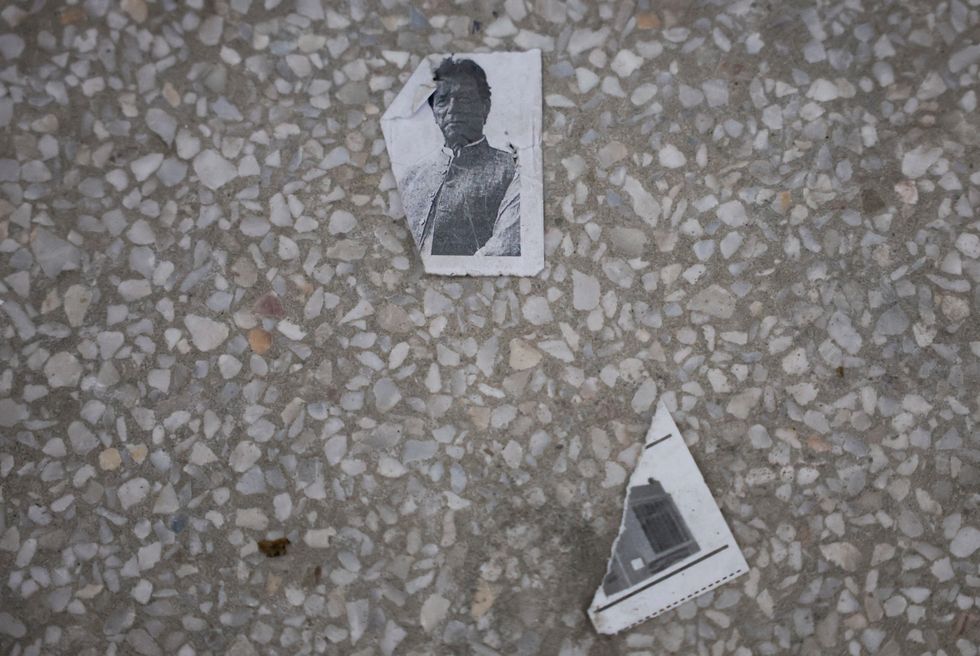PTI reserved seats verdict sparks new conflict between government, judiciary
Experts say ECP has no option but to follow top court's orders

The Pakistan Tehreek-e-Insaf (PTI) party's eligibility for reserved seats in parliament has ignited a fresh conflict between the judiciary, government, and key institutions, with even Supreme Court judges issuing conflicting orders against one another.
Despite a Supreme Court decision favoring PTI, amendments to the Election Act 2017 have left the Election Commission of Pakistan (ECP) in a bind, torn between conflicting directives from the court and parliament.
On July 12, the Supreme Court ruled in an 8-5 decision that PTI is entitled to reserved seats in parliament. However, the government swiftly moved to amend the Election Act, curbing the ability of political parties to submit candidates for those seats after a specific deadline. This amendment, some legal experts argue, undermines the court's decision.
The Election Commission of Pakistan (ECP) took filed a review appeal against the top court’s ruling on the allocation of reserved seats. However, the hearing on appeal was delayed due to the Supreme Court's summer recess, as all 13 judges were not available to hear the case.
Despite this, the case has garnered significant attention, especially after the government introduced amendments to the Election Act in early August. These amendments barred independent candidates from joining political parties after a specified period and restricted political parties from submitting priority lists for reserved seats beyond the legal deadline.

Legal experts argue that this legislation was designed to prevent the implementation of the Supreme Court's decision.
Following the legislation, National Assembly Speaker Sardar Ayaz Sadiq sent a letter to the ECP stating that the Supreme Court’s judgment could not be enforced under the newly amended Election Act. This reshuffled party positions in the National Assembly, with 80 PTI members, previously categorized as independents, being listed under the Sunni Ittehad Council.
A visible divide has also emerged within the Supreme Court itself. Reports of disagreements among the judges were confirmed in the wake of the PTI reserved seats case.
Eight out of 13 judges ruled in favor of PTI, while Chief Justice Qazi Faez Isa dissented. The discord became apparent in subsequent meetings of the Supreme Court Judges Committee, which consists of the Chief Justice and the two most senior judges. Justice Mansoor Ali Shah and Justice Muneeb Akhtar disagreed with Chief Justice Isa, preventing him from forming a bench or scheduling a hearing.
In response, the federal government passed an ordinance amending the Supreme Court’s practice and procedure laws, giving the Chief Justice the authority to remove judges from the committee and appoint replacements.
Chief Justice Isa acted on this power by replacing Justice Muneeb Akhtar with Justice Ameen-ud Din Khan, one of the minority judges who had ruled against PTI in the case.
In their notes, justices Ameen-ud-Din Khan and Naeem Akhtar Afghan, the two judges criticized the majority ruling, arguing that it exceeded the court’s constitutional jurisdiction.
The eight majority judges responded in their detailed verdict, defending their decision and admonishing the minority judges for their tone, which they deemed inappropriate for members of the Supreme Court.
The internal disagreements within the judiciary came to a head when Justice Mansoor Ali Shah refused to join the judges committee meeting after the ordinance was passed.
He argued that the ordinance was introduced hastily and criticized the undemocratic nature of the selection process. Despite his withdrawal, the committee—now consisting of Chief Justice Isa and Justice Ameen-ud-Din Khan—continued to function, with the power to decide on the review applications filed by the ECP, PML-N, and PPP against the Supreme Court’s earlier judgment.
The fate of the appeal now lies in the hands of the divided judiciary, raising questions about the future of judicial unity and the balance of power in Pakistan’s political landscape.
'Speaker's letter holds no legal weight'
Tariq Mehmood Khokhar, former additional attorney general, said the Speaker’s letter to the Election Commission regarding amendments to the Elections Act holds no legal weight.
“Parliament cannot overturn the Supreme Court's ruling on a constitutional matter with a simple majority,” Khokhar explained. “The Supreme Court interprets the constitution, and if parliament disagrees with that interpretation, it must amend the constitution to overrule the court.”
“The Election Commission has no option but to follow the orders of the Supreme Court of Pakistan,” Khokhar added.
Meanwhile, Hassan Raza Pasha, former vice chairman of the Pakistan Bar Council, said the Supreme Court ruled on the reserved seats case in line with the constitution, and parliament amended the Election Act according to the same.
He added that the ECP is caught in the middle, facing pressure from both sides. "It appears the government will benefit from the divide in the judiciary, but regardless of who wins, the country is losing," he said.










Comments
See what people are discussing